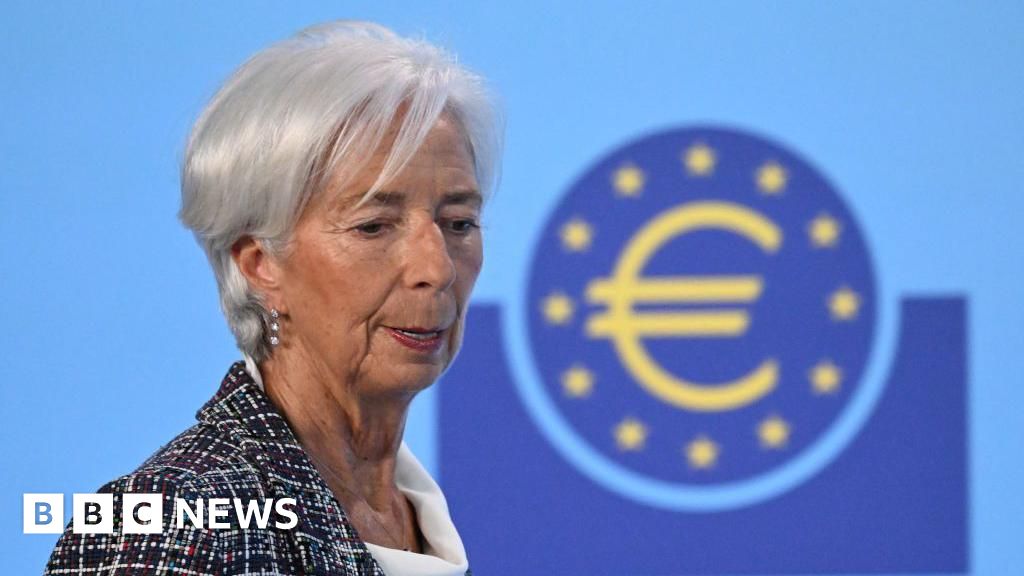The European Central Bank (ECB) has reduced interest rates for the sixth time in nine months to stimulate eurozone economic growth despite challenges such as potential US tariffs and increased European military spending. The ECB lowered its main interest rate to 2.5% from 2.75% and again revised downward its forecasts for eurozone economic growth. This decision follows a significant sell-off of German government bonds, which spread to other markets, including the UK, after Germany announced plans to boost military and infrastructure spending by loosening fiscal rules. This move raised concerns about increased debt, causing long-term German bonds to experience their largest sell-off in years. The euro rose to its highest level in nearly four months, while stocks rebounded. German borrowing costs continued to rise, affecting other countries, including the UK, where concerns about persistent inflation have already driven up borrowing costs. Investment strategist Lindsay James noted that markets still anticipate two further rate cuts by the Bank of England in 2025, citing encouraging recent inflation data. The ECB stated that its rate cuts aim to make new borrowing cheaper for firms and households, yet it reduced its eurozone growth forecast, projecting 2025 expansion at just 0.9%, slightly above last year’s 0.7% pace. The ECB faces challenges in achieving its 2% inflation target, with potential US reciprocal tariffs posing a risk to the eurozone economy. — news from BBC.com
